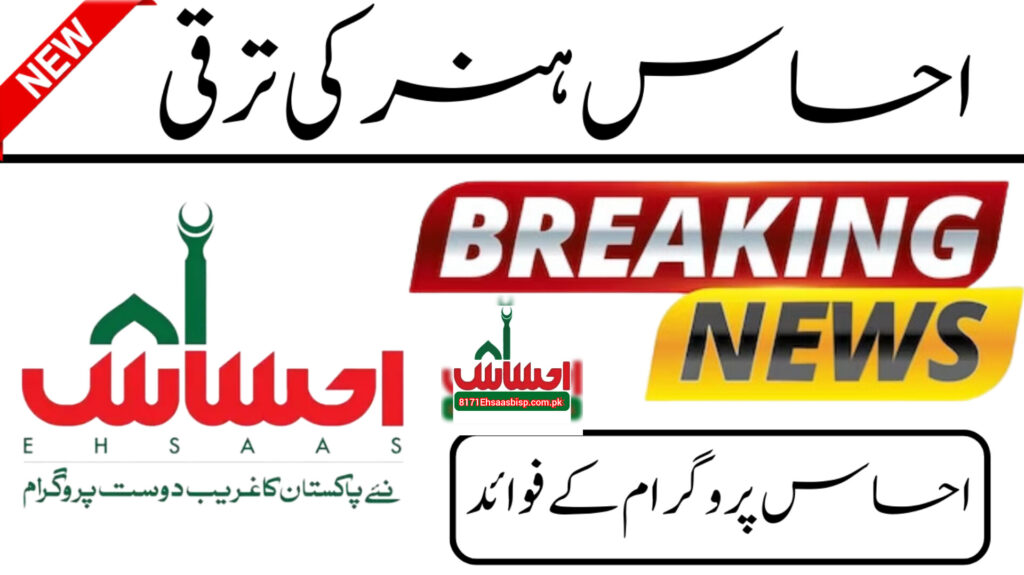
Empowering Through Skill Development
In the realm of poverty alleviation and empowerment initiatives, the Ehsaas Skill Development Program stands out as a transformative effort in Pakistan. This prominent initiative, a vital component of the broader Ehsaas program, is dedicated to uplifting individuals from low-income backgrounds—encompassing youth, women, and marginalized communities—by equipping them with essential skills needed for secure employment and enhanced livelihoods.
Addressing Skill Gaps
In the face of persistent socio-economic challenges, the need for skill development programs is more critical than ever. A significant portion of Pakistan’s population lives in impoverished conditions, facing substantial obstacles in accessing meaningful employment. The Ehsaas Skill Development Program addresses this urgent need by offering a diverse range of training courses designed to meet the demands of high-growth sectors such as construction, information technology, healthcare, and agriculture.
Strategic Approach
The core strategy of the Ehsaas Skill Development Program revolves around aligning training with the evolving needs of the labor market. By identifying sectors with high demand for skilled workers, the program ensures that its graduates are well-prepared to integrate smoothly into the workforce upon completing their training.
Public-Private Partnerships
Understanding the complexity of the challenges involved, the program leverages strategic partnerships with both public and private sector entities. These collaborations not only extend the program’s reach but also facilitate the distribution of resources and expertise necessary for fostering sustainable development.

Embracing Technology
In an era characterized by rapid technological advancements, the Ehsaas Skill Development Program stays ahead by integrating technology into its training methodologies. By utilizing online learning platforms, mobile applications, and other digital tools, the program enhances accessibility and scalability, democratizing skill development opportunities.
Hunarmand Women Pilot Program
Focusing specifically on women from low-income backgrounds, the Hunarmand Women Pilot Program provides vocational training in areas such as tailoring, cosmetology, and information technology. This initiative aims to boost women’s employability, promote economic independence, and foster social inclusion.
Ehsaas Amreen
Recognizing the importance of soft skills in both personal and professional development, the Ehsaas Amreen Program offers training in essential life skills such as financial literacy, communication, and leadership. This program equips women with the competencies needed to navigate and succeed in today’s dynamic socio-economic environment.
See Also:
- Breaking News: How to Apply for the Agriculture Internship Program: A Detailed Guide 2024
- Exclusive Updates: Punjab Government Announces Major Recruitment Drive for 30,000 Teachers 2024
- Breaking News: Sindh Textbook Board Launches Ambitious Tablet Distribution Initiative for Students 2024
- ASF Jobs Apply Before August 25, 2024 – Complete Guide
- Exclusive News: Huawei Train the Trainer Program: A Groundbreaking Initiative for Pakistani Students in 2024
Skills for Life and Livelihood Project
Challenging traditional gender norms, the Skills for Life and Livelihood Project focuses on training women in non-traditional fields, including construction trades. By expanding skill sets and career opportunities, this initiative promotes gender equality and supports inclusive economic growth.
Youth Skill Development Program (YSDP)
Addressing the needs of Pakistan’s growing youth population, the PMYSDP aims to equip young individuals with both traditional and cutting-edge skills crucial for career advancement and socio-economic empowerment. By fostering a skilled workforce, this program contributes to innovation, productivity, and sustainable development across various sectors.
Impact and Effectiveness
The Ehsaas Skill Development Program has received considerable recognition for its substantial impact on poverty reduction and empowerment in Pakistan. Recent evaluations highlight a notable increase in employment rates among program graduates, demonstrating the effectiveness of its demand-driven approach to skill development. Furthermore, the program’s commitment to inclusivity and innovation positions it as a catalyst for transformative change, paving the way for a more prosperous and equitable future for individuals across the socio-economic spectrum.
Conclusion
The Ehsaas Skill Development Program exemplifies the power of targeted interventions in promoting sustainable development and social cohesion. Through its diverse initiatives and strategic partnerships, the program continues to drive progress toward a more equitable and prosperous Pakistan. The ongoing efforts to enhance skill development underscore a commitment to creating opportunities for those who need them most, shaping a brighter future for the nation.
